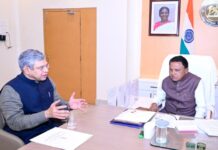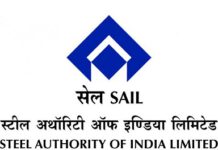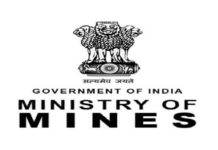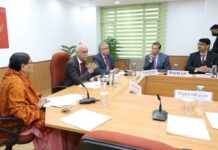By Our Correspondent
NEW DELHI/BHUBANESWAR: Universal and equitable access to Broadband services across the country, especially in the rural areas- is one of the most important visions of Shri Narendra Modi, Prime Minister of India. In line with the PM GatiShakti National Master Plan, Shri Ashwini Vaishnaw, Union Minister for Communications, Electronics & IT and Railways, has launched the “GatiShakti Sanchar” portal for Centralised Right of Way (RoW) approvals on Saturday.
The event was also attended by various State Chief Secretaries and IT Secretaries along with other dignitaries from across the country; along with CEOs/CMDs/DGs/VPs/Presidents of various Telecom Service Providers (TSPs), such as BBNL, Bharti Airtel Ltd, BSNL/MTNL, COAI, DIPA, Indus Towers, ISPAI, Reliance JIO, Sterlite, Vodafone Idea etc. The portal has been developed keeping in view the vision areas of the National Broadband Mission at the core, which are, providing broadband infrastructure as a core utility to every citizen, Governance and services on demand and in particular, digital empowerment of the citizens of our country.
National Broadband Mission (NBM) was set up by the Department of Telecommunication (DoT) on December 17, 2019; to facilitate universal and equitable access to broadband services across the country, especially in rural and remote areas. To fulfil this vision, it is imperative that a backbone of infrastructure is created by facilitating smooth and efficient deployment of Digital Communications Infrastructure across the country. To ensure that, DoT, is launching the “GatiShakti Sanchar” portal. This will provide a robust mechanism to achieve the goal of “Broadband for All” as envisaged in the National Digital Communication Policy-2.
During the launch, MoC mentioned, “The portal shall act as an enabler to the objective of “Ease of doing business” for telecommunications infrastructure works in accordance with the vision of Hon’ble Prime Minister. The timely disposal of RoW applications of various Service and Infrastructure providers shall enable speedy infrastructure creation which would be an enabler for timely rollout of 5G Network also. He indicated advantages of adoption of technological tools in Governance. He emphasized and deeply appreciated the role and cooperation of the states and UTs with the Central Government in operationalization of the integrated centralised GatiShakti Sanchar portal.
The portal will enable applicants form various Telecom Service providers (TSPs) as well as Infrastructure providers (IPs) to apply at a common single portal for Right of Way permissions to lay down Optical Fibre Cable and for erecting mobile towers to State/UT Governments and local bodies. As it smoothens the process of RoW permissions as well as faster approvals; it is believed to facilitate easy rollout of 5G services, in which a Base Transceiver Station (BTS) is installed at very short intervals. For effective monitoring of RoW applications across the country, the portal even comes fitted with a potent dashboard showing State and District wise pendency status.
Government of India is committed to facilitate “Ease of Doing Business” and the launch of the “GatiShakti Sanchar” portal is another step in that direction. The portal will also bring an array of advantages to the Government Bodies- both Central and State/UT. It will smoothen the RoW approval process, which will lead to:
Fast laying of more Optical Fiber Cable and thus will accelerate fiberization.Increased tower density which will enhance connectivity and improve the quality of various telecom services. Increased fiberization of telecom towers, thus ensuring better Broadband speed, across the country.The portal, has been developed by MP state Electronics Development Corporation on behalf of DoT and is expected to give a fillip to the nation’s ‘AatmaNirbhar’ movement, contributing actively to transform our country into a digitally empowered society and knowledge economy. The positive impact of these efforts by the DoT have percolated to both the rural and urban India, ensuring robust broadband connectivity, which in turn will ensure uninterrupted digital access, digital delivery of services and digital inclusion of all, based on technology that is sustainable, affordable and transformative.






























